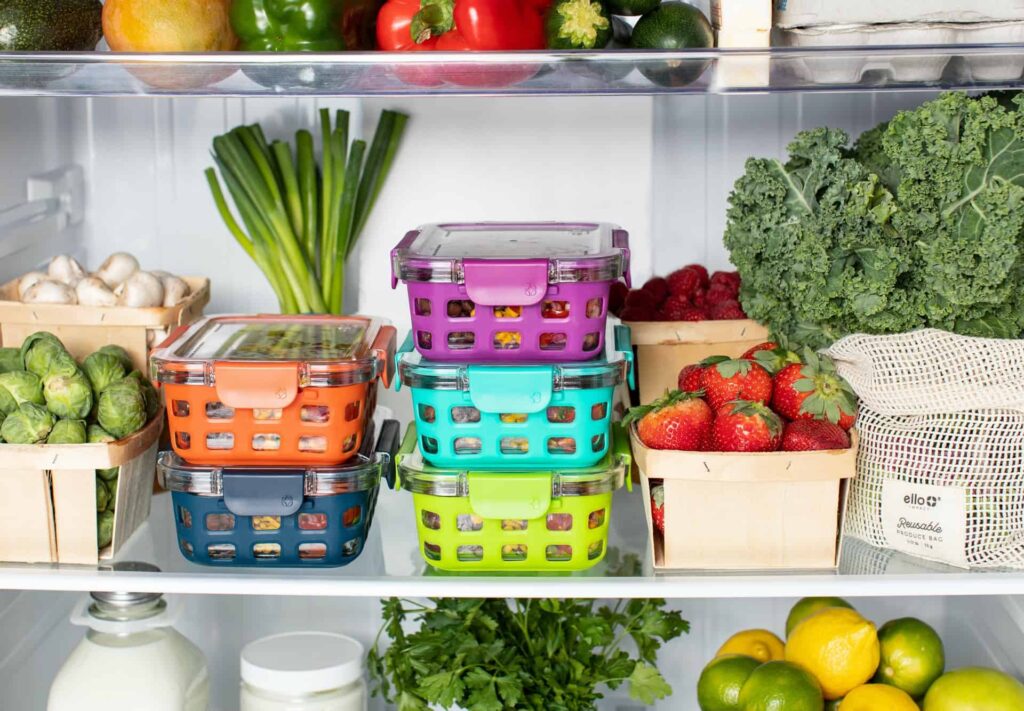Food waste is a very prominent problem plaguing the world today. We can do our part by not wasting the leftover cooked veggies and saving them for later consumption. It also helps in saving time and money.
However, letting the food sit for too long can be hazardous to your health and cause food poisoning. On top of it, it does not come with a best before date, making it difficult to judge how long it can be stored. So, how long do cooked veggies last in the fridge?
The fridge life of each veggie depends on the type of cooked food. Let us take an in-depth look at the kinds of veggies and their life in the fridge!
Difference Between Cooked and Uncooked Veggies
Raw or uncooked veggies pack a lot of minerals, vitamins, antioxidants, fiber, and other nutrients. However, the nutrition we retain depends on how the food is cooked.
Cooked vegetables give more absorbable beta-carotene than raw vegetables, even though they have fewer nutrients.
Cooked veggies are also rich in antioxidants, such as lutein (good for eyes) and lycopene (helps protect the heart and bones). Heating also releases bound minerals, making calcium available to the body.

How Long Can Veggies Be Kept in the Fridge?
Uncooked and cooked veggies have different shelf lives. Even within these two categories, different vegetables stay fresh and edible for only certain days.
The majority of cooked vegetables tend to last up to 5 days. However, frozen cooked vegetables and low water content vegetables have a fridge life of 7 days.
The canned cooked vegetables last the longest with a 10-day survival period. On the other hand, vegetable soup lasts the shortest at just 3 days.
| Cooked/Uncooked Vegetables | Fridge Life |
| Fresh, cooked veggies with low water content (potatoes, kale, spinach) | For 7 days |
| Fresh, cooked veggies with high water content (tomato, zucchini, asparagus) | For 5 days |
| Cooked, frozen veggies | For 7 days |
| Cooked, canned veggies | For 10 days |
| Vegetable soup | For 3 days |
| Vegetable quiche | For 5 days |
| Turnip greens/ collard greens | 5 days |
| Chicken and veggies | For 5 days |
| Steamed vegetables | 5 to 7 days |
| Roasted vegetable | 5 to 7 days |

How to Properly Store Veggies in the Fridge?
While most veggies will survive in the fridge for 5 to 7 days, they’ll never make it even 1 day without proper storage. The best ways to ensure longevity are:
Let the Vegetables Cool Down
While it is not recommended to let the vegetables sit for hours before storing, it is best not to store them immediately.
Keeping a piping hot bag of food inside will raise the refrigerator’s overall temperature. Wait until it is no longer hot, for around 15 to 20 minutes.
Always Use An Airtight or Resealable Plastic Bag
An airtight container or a resealable plastic bag is the best place to stow away veggies for a long time. These containers do not allow air to flow, ensuring that the veggies remain unspoiled.
Mark the Container With the Date
Dating the food with the day it was cooked is essential. Sometimes, food may appear edible, but it might no longer be safe to consume. Since it’ll have no clear indication of going bad, it is best to mark the date and eat within the designated period.
Never Store With Fruits
Stored veggies are best kept away from the fruits. Some fruits release ethylene gas, which can prove harmful to vegetables. They go rancid faster, and their shelf life decreases.
How to Reheat Cooked Veggies After Fridge
While freezing and reheating, you must follow the thumb rule of 40-140oF. The food should always be stored at a temperature below 40oF and reheated above 140oF.
This is to ensure that the lingering bacteria if any, would die. To be safer, you can go slightly higher, at 165oF, while heating.
While heating, make sure that it is consistently hot. Microwaving especially leaves hot and cold areas as it doesn’t heat evenly. So, while heating, stir the dish constantly.
Heating and reheating the same dish multiple times should be avoided. Doing so makes the growth of bacteria more likely.

How to Tell if the Veggie Has Gone Bad?
Even within the designated period, there are chances that the veggies can go bad. Sure signs to tell whether the cooked veggies are safe to consume or not are:
Mold
Molds are a clear indicator of when the cooked food has gone bad. You’ll notice the formation of green or black spots on the food. Throw the food right away and do not consume it. If eaten, it’ll make you extremely sick and even cause food poisoning.
Color
Food becomes inedible if there is even a slight color change. Make sure to remember which color the food is when stored. And if you notice a color change, even during the safe period, discard the vegetable.
Texture
When the cooked veggies have passed their prime, they develop a slimy texture. So, if you’re unsure if it’s fit for consumption, just run your hand on the food. If it’s slimy, toss it away immediately.
Smell
If you notice a pungent smell emanating from the food instead of its usual smell, the food is no longer edible.
Final Thoughts
Storing food rather than throwing it away is always a good idea. However, you have to be clever during storage. Take proper precautions and measures while packing to ensure maximum shelf life.
Consume only within the safe period and look for signs indicating that it’s inedible.

